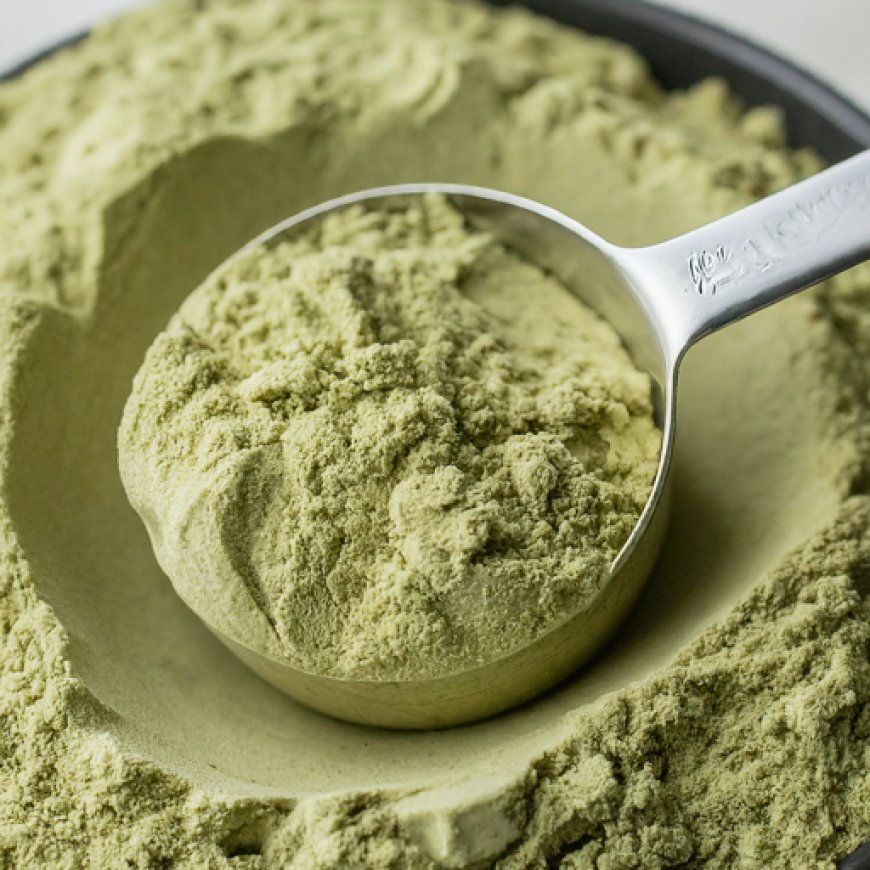Hemp Protein: The Plant-Based Powerhouse for Your Health
Hemp protein is a plant-based powerhouse packed with essential amino acids, healthy fats, and fiber. It's easily digestible, nutrient-rich, eco-friendly, and perfect for boosting your protein intake naturally.

If you're looking for a clean, plant-based source of protein to fuel your body, hemp protein might just be your new best friend. Extracted from hemp seeds, this nutritional powerhouse is packed with essential amino acids, healthy fats, fiber, and minerals, making it a great addition to your diet. Let’s explore why hemp protein is gaining popularity and how you can benefit from it.
What is Hemp Protein?
Hemp protein is derived from the seeds of the hemp plant (Cannabis sativa). Unlike its cousin, marijuana, hemp contains negligible amounts of THC (the compound responsible for the "high"), so it’s safe and legal to consume. Hemp seeds are cold-pressed to remove their oils, and the remaining seed meal is processed into a fine powder—what we know as hemp protein.
Key Benefits of Hemp Protein
-
Complete Source of Protein
Hemp protein is one of the few plant-based proteins that contains all —the building blocks of protein that our bodies cannot produce. This makes it an excellent choice for vegetarians, vegans, or anyone looking to boost their protein intake naturally. -
Rich in Omega Fatty Acids
Hemp seeds are loaded with omega-3 and omega-6 fatty acids, which are crucial for brain health, reducing inflammation, and supporting heart health. These fats are typically found in fish, so hemp protein is a great alternative for those avoiding animal products. -
High in Fiber
Hemp protein retains a lot of the fiber from the hemp seeds. A single serving can provide up to 20% of your daily fiber needs. Fiber supports digestion, helps regulate blood sugar levels, and keeps you feeling full, which can aid in weight management. -
Packed with Nutrients
In addition to protein and healthy fats, hemp protein is a great source of magnesium, iron, zinc, and calcium, all of which are vital for bone health, immune function, and energy production. -
Easily Digestible
Unlike some other plant proteins, such as soy or pea, hemp protein is easier to digest. It contains two main types of protein—edestin and albumin—both of which break down quickly in the body, making it gentle on your digestive system.
How to Use Hemp Protein
Incorporating hemp protein into your diet is simple and versatile. Here are a few easy ways to enjoy it:
-
Smoothies: Blend hemp protein powder into your favorite smoothie for a quick, nutrient-dense boost after your workout or as a meal replacement.
-
Baking: Swap out some flour in your pancake, muffin, or bread recipes with hemp protein to increase the protein content.
-
Oatmeal or Yogurt: Stir a scoop of hemp protein into your morning oatmeal or yogurt for a deliciously filling start to the day.
-
Protein Shakes: Mix hemp protein with water, almond milk, or juice for a simple and convenient post-workout shake.
Hemp Protein vs. Other Proteins
While there are plenty of protein options out there, hemp protein stands out for a few reasons:
-
Plant-based vs. Whey: Hemp protein is a great alternative to whey for those with dairy intolerances or for anyone following a plant-based diet. While whey is a more concentrated source of protein, hemp protein offers the added benefit of fiber and healthy fats.
-
Allergy-Friendly: Many people are allergic to soy or pea protein, but hemp protein is hypoallergenic and generally safe for most people.
-
Environmental Impact: Hemp is an eco-friendly crop. It grows quickly, requires little water, and enriches the soil. By choosing hemp protein, you’re supporting a sustainable and environmentally-friendly food source.
Are There Any Drawbacks?
While hemp protein has many benefits, it’s worth noting that it typically contains less protein per serving compared to more concentrated sources like whey or soy. Most hemp protein powders provide around 10-15 grams of protein per 30-gram serving, whereas whey can offer 20-25 grams. To get a similar protein boost, you may need to consume a slightly larger serving of hemp protein.
Conclusion
Hemp protein is a nutrient-packed, plant-based protein that offers a wide range of health benefits, from supporting muscle growth to promoting heart health. Whether you're an athlete, vegan, or just looking to diversify your protein sources, hemp protein is an excellent choice to add to your diet.
With its rich nutrient profile, easy digestibility, and environmental benefits, hemp protein might just become your go-to protein supplement for a healthier, more balanced lifestyle.












